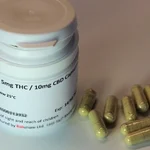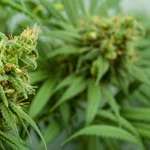The Science behind Edibles and Blood Pressure
As more and more states legalize the use of recreational marijuana, the popularity of edibles has increased dramatically. Edibles come in various forms such as brownies, gummies, cookies, and chocolate bars, and are known for their longer-lasting and more potent effects compared to smoking marijuana. However, with any type of drug consumption, there are always concerns about potential side effects. One common question that people ask is whether edibles can drop blood pressure.
To understand this question, let’s look at the science behind edibles and blood pressure. Our bodies have a complex system called the endocannabinoid system, which plays a crucial role in regulating various physiological processes such as appetite, pain, mood, and sleep. This system consists of cannabinoid receptors, endocannabinoids (molecules produced by our bodies), and enzymes that break down these molecules.
When you consume edibles, the active ingredient THC (tetrahydrocannabinol) binds to the cannabinoid receptors in your brain and body, leading to various effects such as euphoria, relaxation, and altered perception. THC can also lower blood pressure by dilating blood vessels, which reduces the resistance to blood flow and makes it easier for the heart to pump blood. However, the extent and duration of this effect can vary depending on factors such as dose, tolerance, and individual differences.
The Potential Benefits and Risks of Lowering Blood Pressure
Lowering blood pressure can have both potential benefits and risks, depending on your health status and context. For example, if you have high blood pressure (hypertension), which is a significant risk factor for heart disease and stroke, lowering it can reduce your risk of these conditions. In general, a blood pressure reading of less than 120/80 mmHg is considered optimal for most adults.
On the other hand, if you already have low blood pressure (hypotension), which is defined as a reading of less than 90/60 mmHg, further lowering it can cause symptoms such as dizziness, lightheadedness, and fainting. Hypotension can also be a side effect of certain medical conditions or medications, so it’s essential to consult your healthcare provider before using edibles if you have any underlying health issues.
Factors That Can Influence the Effects of Edibles on Blood Pressure
Several factors can influence how edibles affect your blood pressure, such as:
- Dosage: Higher doses of THC can lead to more significant effects on blood pressure, both in terms of magnitude and duration.
- Tolerance: If you’re a regular user of marijuana, your body may develop tolerance to the blood pressure-lowering effects of THC over time.
- Method of consumption: Edibles take longer to kick in than smoking or vaping marijuana since they have to be metabolized through the digestive system. This slower onset can also make it harder to titrate the dose and avoid overconsumption, which can lead to adverse effects such as nausea, vomiting, and anxiety.
- Timing: The timing of your blood pressure measurements can also affect the results. For example, if you take your medications at the same time as edibles, it can interact with their absorption and metabolism.
- Individual differences: Everyone’s body reacts differently to edibles, based on factors such as genetics, metabolism, and underlying health conditions.
Potential Alternatives for Lowering Blood Pressure
If you’re looking for alternative ways to lower your blood pressure, there are several lifestyle changes and medications that can help. These include:
- Eating a healthy diet that’s low in sodium and high in fruits, vegetables, and whole grains.
- Exercising regularly, such as brisk walking or swimming, for at least 30 minutes a day.
- Maintaining a healthy weight and reducing belly fat, which is a risk factor for hypertension.
- Limiting alcohol consumption and quitting smoking.
- Taking medications such as diuretics, ACE inhibitors, calcium channel blockers, or beta-blockers as prescribed by your healthcare provider.
Conclusion
In conclusion, edibles can potentially lower blood pressure by dilating blood vessels, but the extent and duration of this effect can vary depending on several factors. While this effect can be beneficial for people with hypertension, it can also pose risks for those with hypotension or other underlying health issues. Therefore, it’s essential to consult your healthcare provider before using edibles, especially if you’re taking medications or have a history of cardiovascular or other medical conditions. Additionally, lifestyle changes, such as a healthy diet and exercise, and medications can be effective alternatives for lowering blood pressure.












